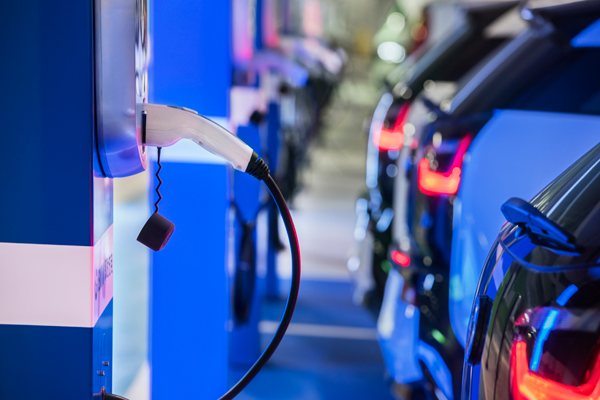BMW to install 80,000 public charging poles nationwide
By Hao Yan | China Daily | Updated: 2018-03-26 11:05

Automaker to provide more efficient public charging services, especially for its own customers
To ease the future development of the new energy car sector, German automaker BMW has committed to further expanding its charging networks in the world's largest auto market.
The premium carmaker announced on March 17 in Chengdu that it has set itself the ambitious target of installing more than 80,000 public charging poles in more than 100 Chinese cities by the end of the year. The aim is to provide more efficient, convenient and intelligent public charging services, especially for its own new energy vehicle users, according to the company.
"BMW is already the market leader of the premium electric car segment and will continue to lead e-mobility development," Martijn Oremus, head of brand management, new energy vehicles at BMW Brilliance, told reporters.
The latest BMW Charging Station Wallbox charges the BMW i3's battery from dry to 80 percent in just under four hours, according to the company. BMW also provides a 1,680-hour or two-year free charging service to car owners who don't have their own private charging facilities in Beijing, Shanghai, Guangzhou, Shenzhen, Hangzhou and Chengdu.
As of 2017, BMW had installed more than 65,000 charging poles scattered across more than 90 Chinese cities, in cooperation with the four major Chinese charging network operators, including Qingdao Teld New Energy.
China is the host of the world's largest public charging network for electric vehicles, with a total of more than 440,000 charging poles in the country, including 213,903 public charging poles and 231,820 private charging poles, by the end of 2017, according to the China Electric Car Charging Technology and Industry Alliance.
Oremus said that the global launch of the electrified BMW i4 is set for next year and the BMW X3 battery electric vehicle will hit the market by 2020, bringing its total global lineup of new energy BMW vehicles to 25 models, including 12 fully electric cars, by 2025.
The all-new BMW 5 Series plug-in hybrid electric vehicle is set to launch in the Chinese market at the end of this month, swelling the ranks of the premium brand's electrified offerings to six models.
The automaker's bold moves were announced after the BMW i business unit was established in China as a joint venture between BMW China Automotive Trading and BMW Brilliance Automotive, to ensure seamless marketing and promoting of the i e-mobility sub-brand.
A study report published earlier this month by consultancy Ernst & Young Global found the German car industry is the biggest investor in electric vehicles worldwide.
Joachim Damasky, managing director at the German Association of the Automotive Industry, said: "The development of electric vehicles is directly related to that of the power network, so the power supply is a critical part of the promotion of e-cars.
"I'm pretty sure that German manufacturers will do all they can to support new energy vehicle development in China, for it's equally critical for both countries."
Another German premium automaker, Daimler AG, has acquired a 3.93 percent stake in Beijing Electric Vehicle Co, a subsidiary of BAIC Group. The investment made earlier this month will deepen their strategic cooperation in the new energy vehicle sector, and underline their commitment to the further development of electric mobility in China. BJEV possess a charging network with 46,000 public charging poles and 32,000 private ones.
Volkswagen has announced a 22.8 billion euros ($28.18 billion) investment package for the next five years covering the future viability of its plants throughout the world. In 2020, the Volkswagen I.D., the first vehicle in the new generation of electric automobiles will be launched on the market.
BMW Group, Daimler AG, Ford, and the Volkswagen Group with Audi and Porsche announced a joint venture last year to develop and install a high-power charging network for electric cars in Europe. The network is called Ionity and will span across Europe with the hopes of 400 HPC stations by 2020. These stations allow fast charging times due to their capacity of up to 350 kW. This new network is believed by many to be the most important electric vehicle charging infrastructure effort since Tesla's Supercharger network.
























